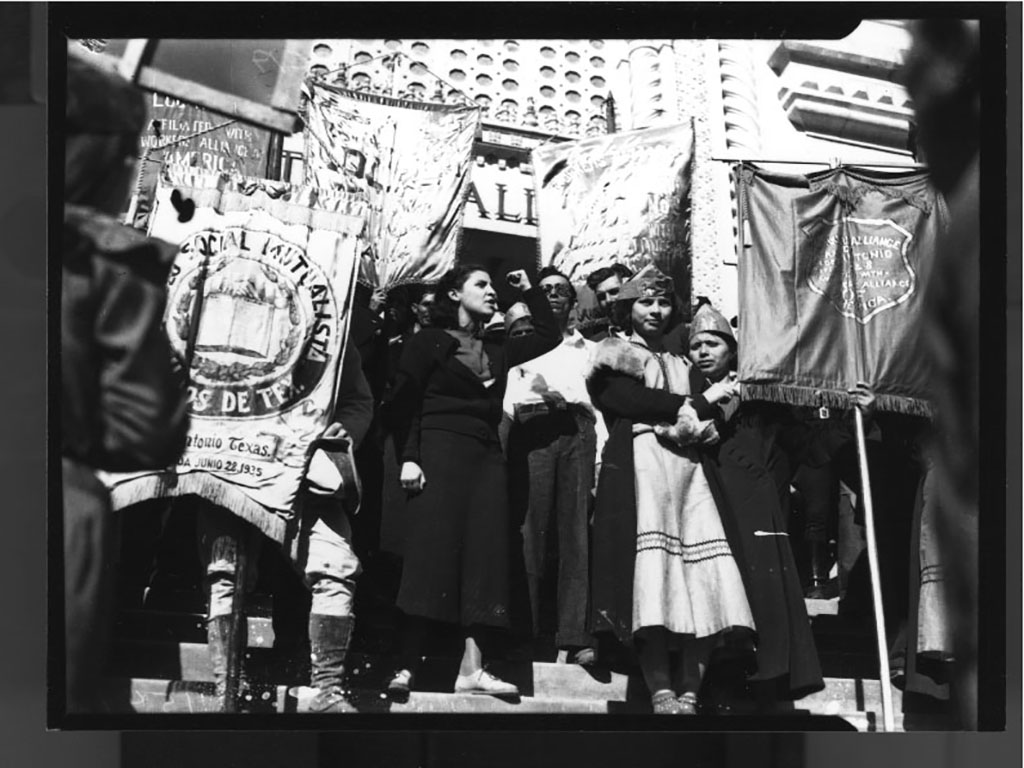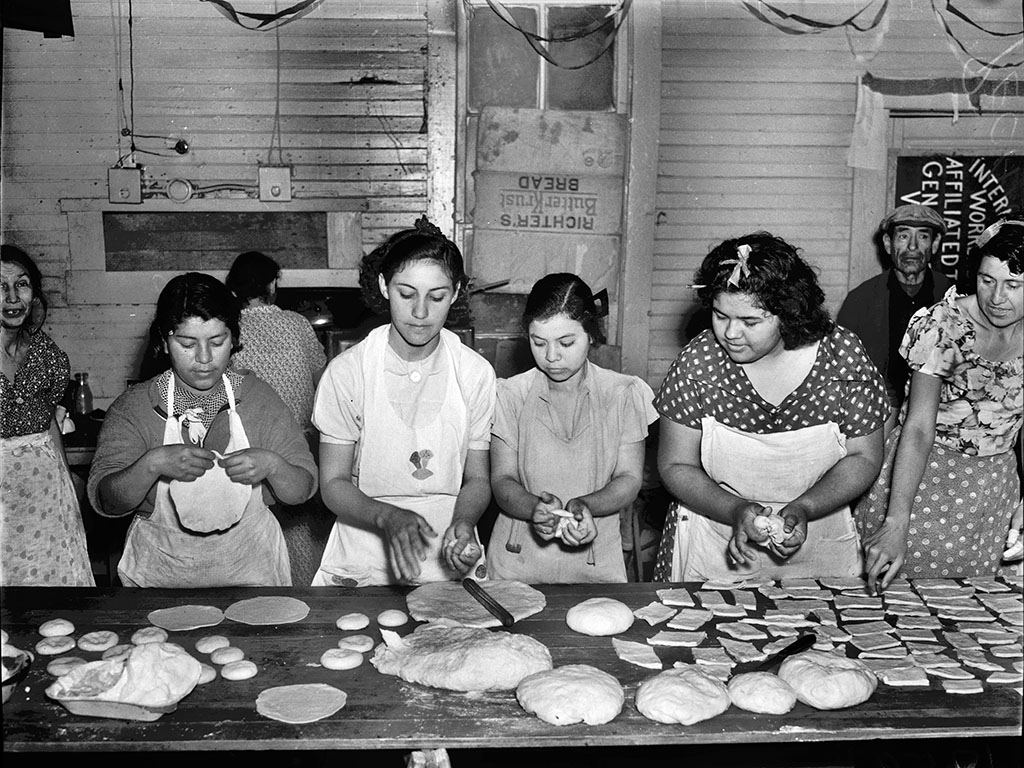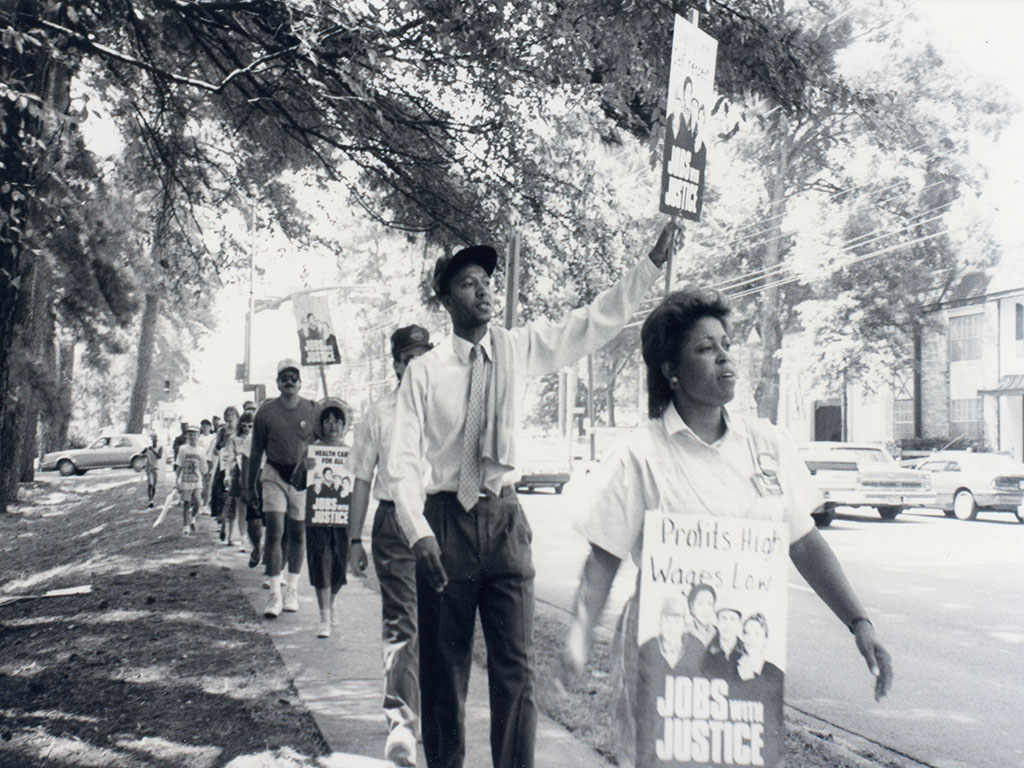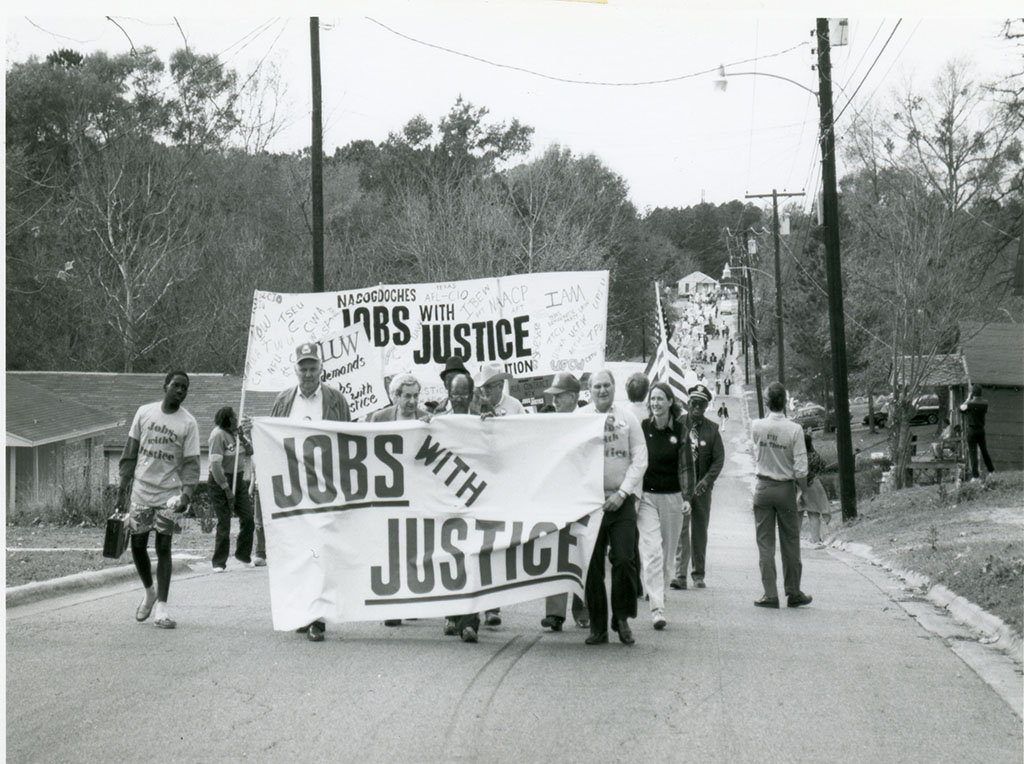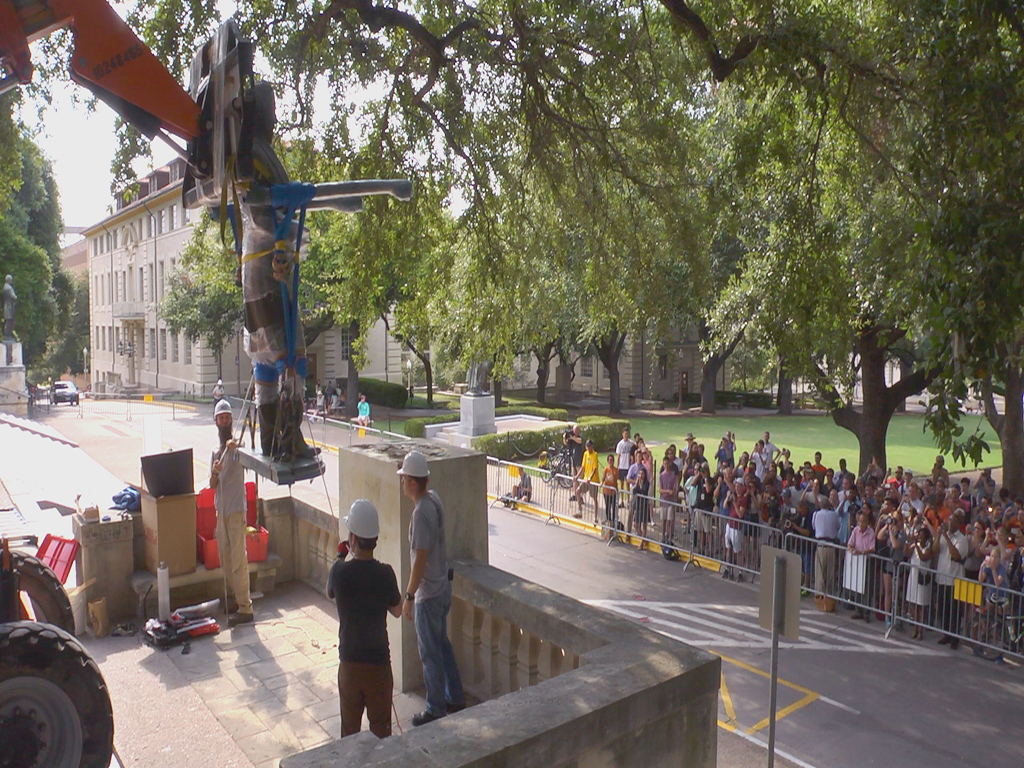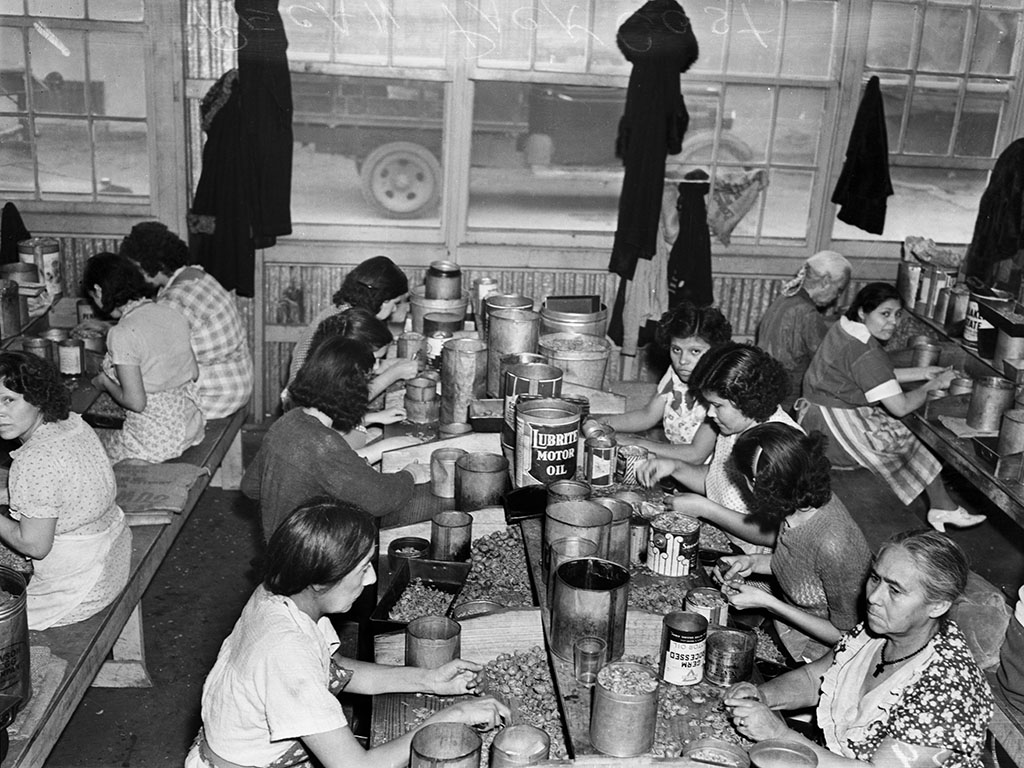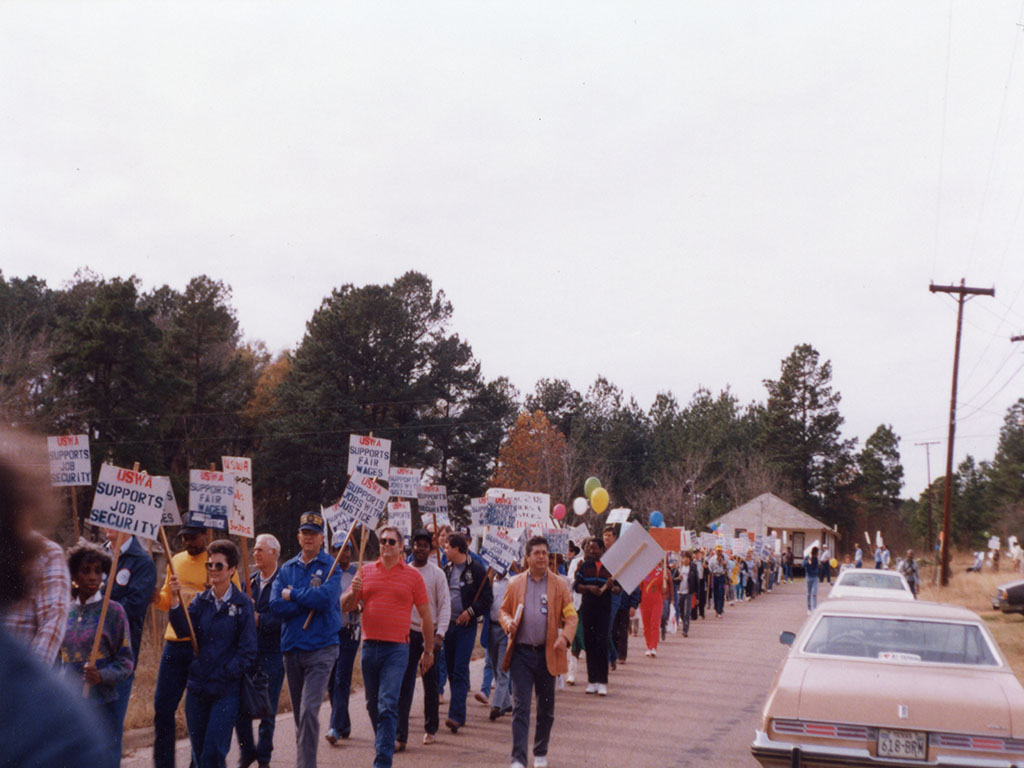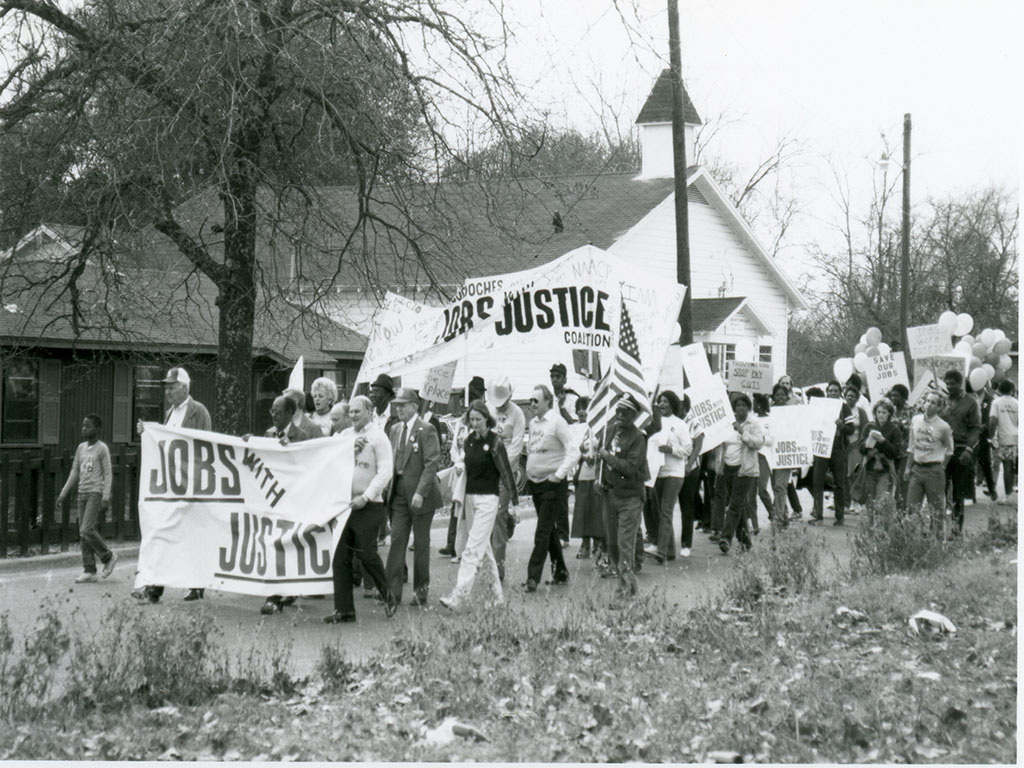Synopsis
The film is a documentary based in the telling of two events: the San Antonio pecan shellers’ strike of 1938 and the Jobs with Justice march led by Nacogdoches cafeteria workers, groundskeepers, and housekeepers in 1987.
In 1938, half of the nation’s pecans were shelled in San Antonio. When the shellers’ wages were cut from about 6 cents to 4 cents per shelled pound, Emma Tenayuca led an estimated ten thousand workers in a massive walk out. The strike lasted 37 months before the company gave in. While the pecan shellers’ strike is recognized by many as the birth of the Chicano movement, it is shrouded in myth and denial about its iconic communist leader, Emma Tenayuca.

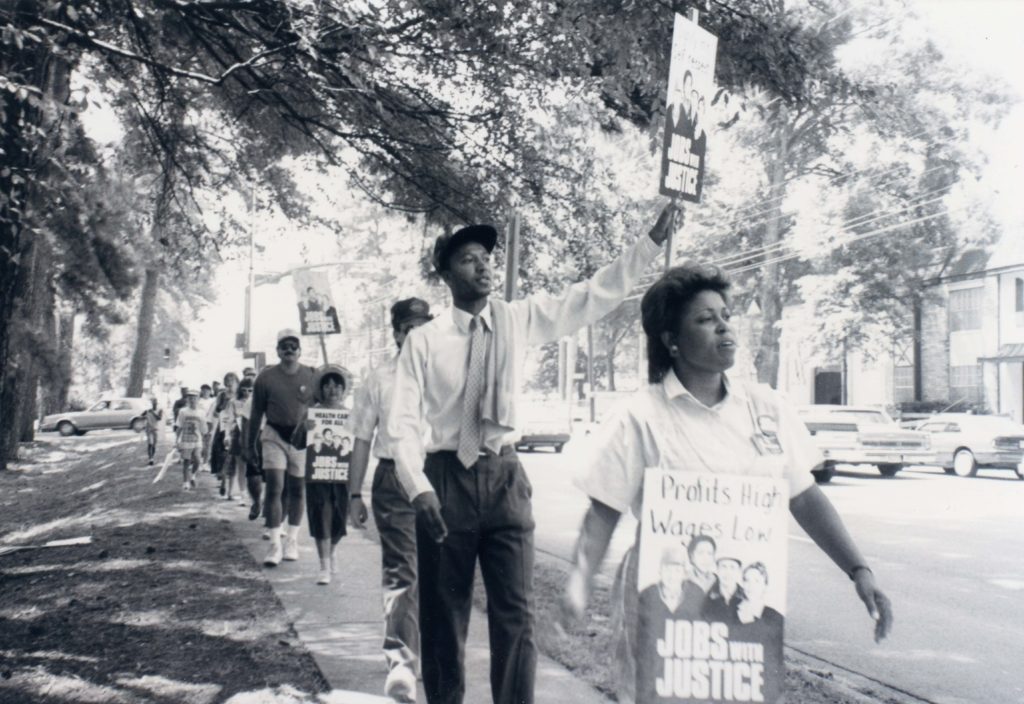
The 1987 march on Nacogdoches was the result of the Annie Mae Carpenter race and gender discrimination lawsuit initiated by the NAACP ten years earlier. Finding that the University and the courts were unresponsive, workers organized a march of more than 3,000 people – labor unionists, civil rights and women’s activists. The march led to a union contract, continuing union representation, and the payment of back wages. While the uprising in Nacogdoches is largely unknown, Texas historian Ruthe Winegarten described it as an epiphany for African American women in Texas.
Lewis explores both events in the same film, using the methods of oral history and exploring the relationship of these stories to contemporary ideas and events.
Reviews
-
 Texas Observer: A New Documentary on Texas Labor History Offers a Much-Needed Infusion of HopeAugust 7, 2018/0 Comments
Texas Observer: A New Documentary on Texas Labor History Offers a Much-Needed Infusion of HopeAugust 7, 2018/0 Comments -

-

-



